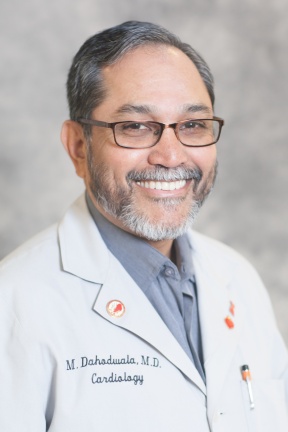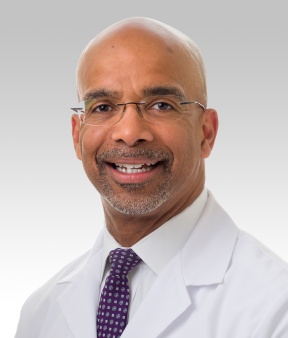By: Ashmar Mandou
In February we not only celebrate Valentine’s Day, but we also celebrate National Heart Month to raise awareness among the U.S. population about cardiovascular health. Heart disease is responsible for one of every three deaths in the United States, and is one of the largest cause deaths among Hispanics living in this country. Experts attribute cardiovascular diseases to poor nutrition and lack of regular check-ups. Therefore, it is crucial to our community to be well-informed about what they can do to improve their cardiovascular health and therefore, prevent risks in the future. This month we hold another panel of our Medical Corner series to discuss heart health.
 Lynne T. Braun, PhD, CNP
Lynne T. Braun, PhD, CNP
Professor of Rush University Colleges of Nursing and Medicine
Nurse Practitioner for the Rush Heart Center for Women
What are the causes of heart problems?
There are many causes of heart problems. A heart attack is usually caused by the rupture of plaque (a fatty substance) that accumulates in the arteries that feed the heart muscle. Other heart problems consist of primary diseases of the heart muscle, narrowing or leakage of heart valves, other problems with the heart structure, and heart failure (weakening of the pumping action of the heart). Risk factors are likely causes of heart problems, especially high blood pressure, cholesterol abnormalities, smoking, diabetes, obesity, and a sedentary lifestyle. If risk factors are prevented, many heart problems can also be prevented.
When should an individual receive routine cardiac checkups?
Every adult should have a physical exam once every 2 years or so, and more often if he/she has health issues. During a physical exam, the healthcare provider will listen to the heart, feel pulses, and observe for problems with circulation. If someone has symptoms that are suggestive of heart disease, a primary care provider may refer him/her to a cardiologist (a heart specialist), especially if a diagnostic test was ordered and it was abnormal. In addition, if someone has risk factors that require better control, a referral may also be made to cardiology.
Should someone begin a cardiac rehab program to make their heart stronger?
If a person has a “qualifying diagnosis” for cardiac rehabilitation, he/she should absolutely attend. Cardiac rehabilitation includes supervised and monitored exercise and risk factor education. Studies show that cardiac rehab reduces deaths and future heart attacks and improves quality of life. People who have had a heart attack or stent, bypass surgery or heart valve surgery, heart transplant, heart failure, or peripheral arterial disease are eligible to attend cardiac rehab.
What should someone do if symptoms get worse?
If someone with heart disease has worsening symptoms, he/she should call a healthcare provider, either the primary care provider or specialist (cardiologist). If symptoms are severe or occur abruptly, a person should immediately go to the emergency department of the nearest hospital. It is always safest to call 9-1-1 since emergency personnel are equipped to assess a person’s condition, begin treatment, and transport to the hospital.
What foods are best to strengthen the heart?
The most heart-healthy foods are those that are fresh and high in fiber. A plant-based diet helps to prevent risk factors and to lower cholesterol and blood pressure. In general, we recommend a diet rich in fruits and vegetables and whole grains, and low in saturated fat, sugar, and sodium.
What can someone do to feel less stress and worry?
There are a variety of ways to reduce stress and worry. Many people like to exercise on a regular basis. This helps to reduce stress, strengthens the heart and reduces risk factors. Other ways to reduce stress and worry are to engage in yoga, meditation or prayer. This is one area where technology is useful. Many phone/tablet Apps are available to guide a person through meditation or prayer. The key is to practice it regularly, every day, to lower and prevent stress.
 Christopher Flinn, MD
Christopher Flinn, MD
Physician in Pediatrics/Internal Medicine
Lawndale Christian Health Center
What are the causes of heart problems?
There are quite a few causes of heart problems. Impaired blood supply to the heart caused by atherosclerosis (hardening of arteries) is the most common cause of heart disease. Tobacco smoking, diabetes and obesity often lead to heart disease by worsening atherosclerosis. Other common causes of heart disease include high blood pressure and problems with heart valves. But there are many other causes of heart disease, including infections, thyroid disease, alcohol, drugs, and congenital heart disease (a heart condition present before birth) just to name a few.
When should an individual receive routine cardiac checkups?
Most visits to your primary care provider (PCP) will include routine assessments of your blood pressure and some screening questions about symptoms of heart disease. Blood tests can be useful in determining your risk for heart disease. We generally only recommend routine cardiac screening tests, such as EKGs, echocardiograms, or stress tests, if you have symptoms suggestive of heart disease. So, it is important to see your PCP regularly to determine whether you have signs or symptoms suggestive of heart disease.
Should someone begin a cardiac rehab program to make their heart stronger?
There is good evidence that exercise-based cardiac rehabilitation programs are effective. They reduce risk of hospitalization and reducing risk of cardiac death for people who have stable coronary artery disease (CAD), or who have had recent heart attack or heart procedure (for example, stents or CABG surgery). This is consistent with the general idea that exercise is important for good heart health – before AND after heart disease develops.
What should someone do if symptoms get worse?
Worsening symptoms can be a very important sign of worsening disease, and should be evaluated promptly. If your chest pain becomes more severe or more frequent, you should call your PCP immediately or seek emergency medical treatment. Additional symptoms, such as shortness of breath, palpitations, lightheadedness, or leg swelling, can also be important signs of serious heart disease requiring urgent evaluation. Be sure to ask your PCP about which symptoms you should be most aware of, and develop an action plan so you know what to do if your symptoms worsen.
What foods are best to strengthen the heart?
Generally, a well-rounded diet including fresh vegetables, fresh fruits, and water is important in providing nutrition and energy without adding other unnecessary foods. Avoiding certain types of foods can be important for certain heart conditions. For example, avoiding cholesterol-rich foods is important for preventing atherosclerosis and heart attacks; and avoiding foods high in sodium (salt) can be important for controlling blood pressure.
What can someone do to feel less stress and worry?
Prevention and preparation are keys to minimizing worry about heart disease. Eating a healthy diet, exercising regularly, and maintaining a relationship with your PCP can help prevent heart disease and help you be tuned in to which symptoms are most important to pay attention to. Work with your PCP to develop an action plan so you know how to respond if you notice symptoms of heart disease.
 Mohamed S. Dahodwala, MD
Mohamed S. Dahodwala, MD
Cardiologist and Chairman of Internal Medicine at Saint Anthony Hospital
What are the causes of heart problems?
Some of the most common causes of heart problems include genetic predispositions to heart blockages, smoking, diabetes and obesity.
When should an individual receive routine cardiac checkups?
Individuals should receive routine cholesterol checks as early in life as possible, particularly those with a family history like parents or siblings.
Should someone begin a cardiac rehab program to make their heart stronger?
Before anyone can begin cardiac rehab, they must complete a stress test to make sure that they are not in any danger. Cardiac rehab is typically completed following a heart attack, or after someone has had open heart surgery. Some people who are overweight do well with cardiac rehab and can improve the condition of their heart.
What should someone do if symptoms get worse?
If someone experiences increasing shortness of breath on exertion or indigestion, they should not ignore these symptoms. Go see your physician immediately. Women especially need to play close attention to any signs, as they have less typical symptoms.
What foods are best to strengthen the heart?
People should aim for healthy food options such as diets that are low in salt, calories and cholesterol. Some examples of foods that can have heart healthy benefits are almonds, walnuts, blueberries, black and green teas, and even the cocoa in dark chocolate.
What can someone do to feel less stress and worry?
Society today seems more stressed than when I started my practice over three decades ago. We are constantly connected to technology. People can exercise regularly, eat healthy, avoid smoking and get an adequate amount of sleep each night – between six to eight hours – to feel less stress and worried. Before bedtime, also try and disconnect from your phone about an hour before bedtime. If you are having problems sleeping and think you may have sleep apnea, go have this checked. Sleep apnea puts greater tension on the heart and can impact overall heart health.
 Clyde Yancy, MD
Clyde Yancy, MD
Chief of Cardiology at Northwestern Medicine
What are the causes of heart problems?
It is important to know that 80 percent of heart disease is preventable. This means that the usual causes of heart disease are within our reach to control. Top of the list causes include a poor diet, overweight/obesity, lack of regular physical activity, smoking and high blood pressure. Yes, some heart disease is caused by genetics and for some family’s heart disease is common but most of our challenges with heart disease and stroke start at home with our lifestyle choices.
When should an individual receive routine cardiac checkups?
All adults should undergo routine preventive care- this varies according to age and gender. BUT, there is no need to wait for a routine check-up—especially since it is so difficult for many of us to schedule or access routine health care. Recognize that lifestyle changes are safe and can begin at home. Start by eating less, doing more and having your blood pressure checked.
Should someone begin a cardiac rehab program to make their heart stronger?
Cardiac rehab is an important tool for those with already established heart disease; for example, those with recent heart surgery or after a recent heart attack and even those with heart failure, cardiac rehab can benefit greatly from cardiac rehab. Rehab is not just about getting in shape but about learning a new lifestyle and understanding your heart circumstances even better.
What should someone do if symptoms get worse?
Don’t wait. If there is a concern that ANY sensation is unusual or new and raises the question of heart disease, call someone ASAP and get moving to see a health care provider. In every circumstance, earlier attention to heart disease is better.
What foods are best to strengthen the heart?
There is no magic here; following a heart healthy diet is the wise choice. Focus on more fruits and vegetables, less sodium, more potassium, fewer unhealthy saturated fats and healthier fats. Choose lean cuts of beef, pork and chicken and prepare fresh foods with baking or broiling methods using seasonings other than salt. Fish (not fried!) is a great choice. Skip the fried foods, go easy with desserts, select healthy snacks. Beware of hidden fats and calories, for example, salad dressing, mayonnaise and alcohol. Substitute water for sugar sweetened drinks as your beverage of choice.
What can someone do to feel less stress and worry?
Knowledge is power; facing the unknown generates anxiety and usually is counterproductive. Read, raise questions, have discussions and become informed about your heart health. AND, don’t do this alone. You will have much less anxiety if a friend, partner, family member or advocate supports you (and you them) in this process.









